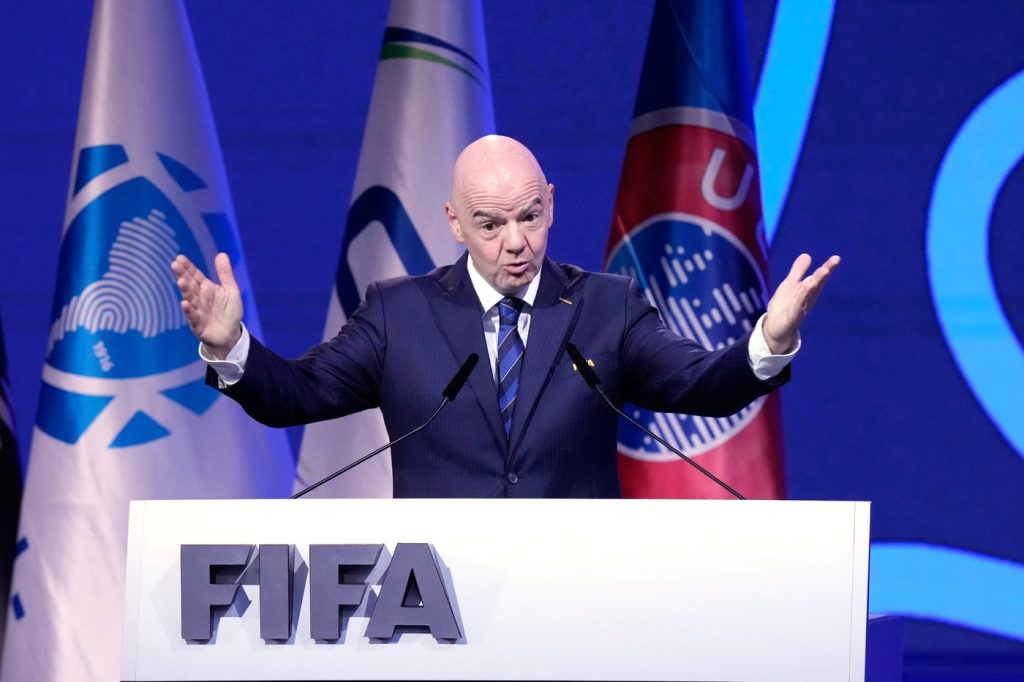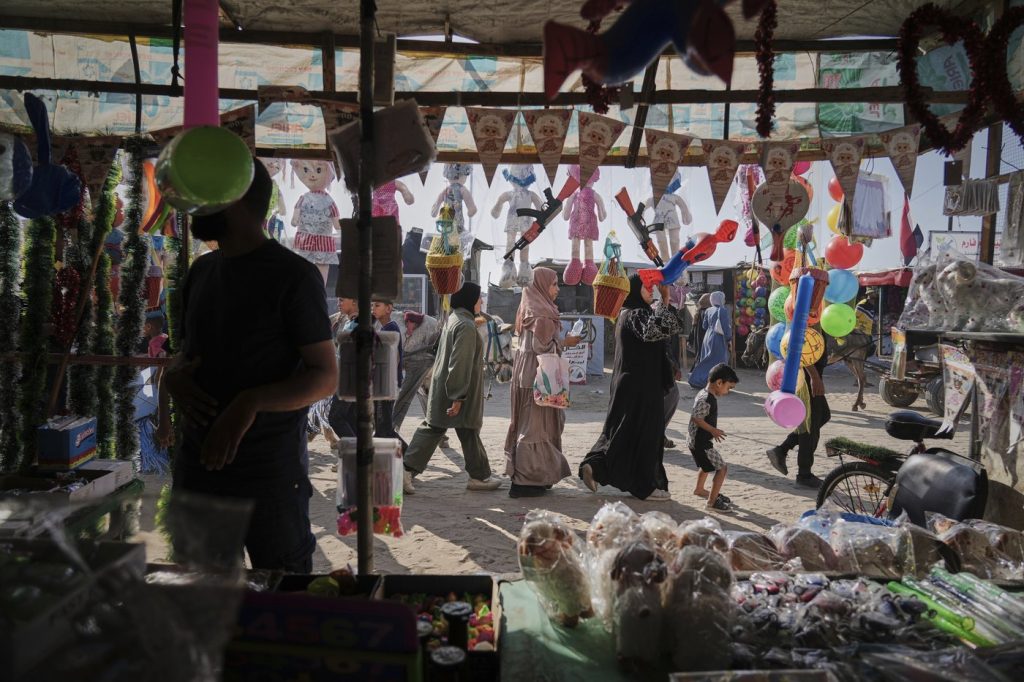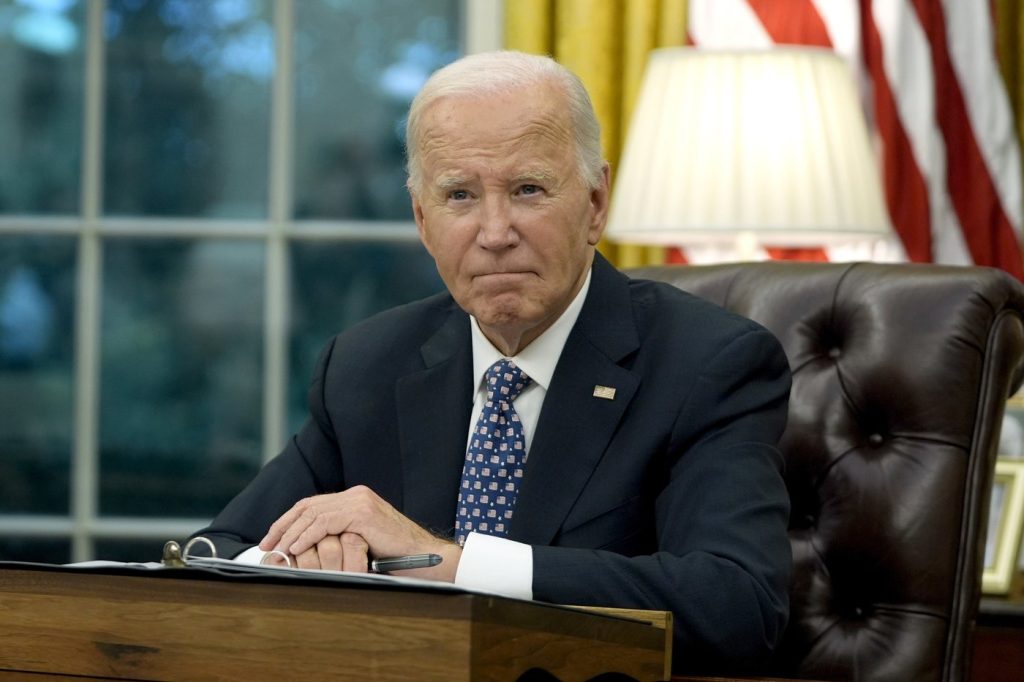GENEVA (AP) — U.S. President Donald Trump has frequently expressed enthusiasm for the upcoming 2026 World Cup and the 2028 Los Angeles Olympics, highlighting these events as pivotal moments in his potential second term. However, a significant cloud of uncertainty surrounds the visa policies for foreign visitors intending to participate in these major sporting events.
Trump's recent travel ban, which affects citizens from 12 countries, has raised crucial questions about its implications for the World Cup and the Summer Olympics, especially considering the need for host nations to welcome global attendees.
Under the new travel ban policy, effective from Sunday to Monday, citizens from Afghanistan, Myanmar, Chad, the Republic of Congo, Equatorial Guinea, Eritrea, Haiti, Iran, Libya, Somalia, Sudan, and Yemen will be prohibited from entering the U.S. Additionally, visitors from seven other countries—including Burundi, Cuba, Laos, Sierra Leone, Togo, Turkmenistan, and Venezuela—will face tightened restrictions.
Trump's administration contends that these nations have “deficient” screening and vetting processes or have historically resisted repatriating their citizens. This creates a complicated scenario for sporting events that typically rely on participation from diverse backgrounds.
As of now, Iran, which has qualified for the World Cup—co-hosted by the U.S., Canada, and Mexico in 2026—stands as the only affected country that has secured a spot. Other nations such as Cuba, Haiti, and Sudan are still in contention, while Sierra Leone may remain in the mix through playoff matches. Nevertheless, an exception in the policy allows athletes, their coaches, and immediate family members to participate in major sporting events like the World Cup and the Olympics despite the ban.
The Summer Olympics, set to welcome approximately 200 countries, will similarly receive exceptions regarding athlete participation, allowing qualification to occur as long as the current policies remain intact. However, the travel ban notably lacks provisions for fans from these nations who wish to attend the events, placing additional hurdles for supporters particularly from countries like Iran.
Historically, fans traveling to the World Cup tend to be from more affluent backgrounds, often associated with the diaspora, who may have alternate passport options. Consequently, they pose a lower risk for security measures during the event compared to regular club team supporters traveling abroad for international competitions.
In contrast, Olympic visitors typically represent an even higher-end demographic, although attendance for the Summer Games is expected to be lower compared to the World Cup.
The collaboration between U.S. officials and FIFA, as well as Olympic organizers, also comes into play amid these travel restrictions. FIFA President Gianni Infantino has established a close rapport with the Trump administration, advocating for seamless operations during the tournament that could generate substantial revenue for FIFA, projected to be around $13 billion from 2023 to 2026. Infantino has engaged in discussions with Trump, seeking to assure smooth operations amid the evolving travel situation.
LA28 Chairman Casey Wasserman has expressed gratitude towards the federal government for recognizing the special considerations needed for the Olympic Games, emphasizing confidence in future cooperation as plans are fine-tuned. The State Department is reportedly working on a dedicated team to facilitate visa processing ahead of the 2028 Olympics, focusing mainly on athletes rather than fans.
In comparison, host nations like Russia in 2018 and Qatar in 2022 adopted unique measures allowing fans entry using game tickets as visa substitutes, albeit with background checks. Other governments have historically denied entry to individuals deemed unwelcome; such as Belarus President Alexander Lukashenko, who was refused a visa for the London Olympics in 2012.
As the countdown to these grand events continues, the intricate dynamics of travel restrictions, athlete participation, and fan engagement remain areas of critical focus.












